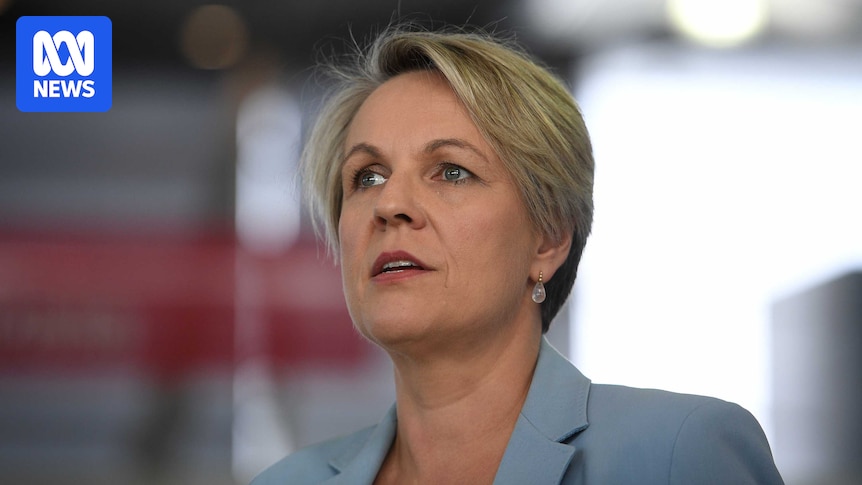Federal frontbencher Tanya Plibersek has indicated that her party will not intervene in the Victorian government’s push to legislate the right to work from home.
Victorian Premier Jacinta Allan used a weekend Labor conference to unveil her government’s plan to introduce protections for employees who want to work at least two days a week from home.
Her party intends to legislate the change next year.
Industrial relations laws are typically the domain of the federal government, and working from home laws were a major issue at this year’s federal election.
The Coalition’s opposition to working from home arrangements before a significant policy reversal during the campaign, is said to have contributed to Peter Dutton’s election loss.
Tanya Plibersek says her government continues to support working from home when it’s practical. (Supplied: Unsplash)
Ms Plibersek on Monday told Channel 7’s Sunrise program that her government supported working from home where it was practical and had been negotiated between employees and employers.
“We know that Australians value it, and when Peter Dutton tried to get rid of it in the last election, there was quite a backlash,” the social services minister said.
She said it was a matter for Victoria whether it legislated to enshrine the right.
“We’re not marking their homework, let’s put it that way.”
Employers say state move is overreach
Ms Allan’s announcement has sparked concern from some business leaders, including prominent employer representative group the Committee for Melbourne.
Chief executive Scott Veenker said the move was unnecessary.
He said working from home policies, which are generally determined by employers, were successful under current arrangements, and introducing legal protections would only create more red tape.
Working from home rights to be protected
“We don’t think this is in their realm of control as far as dictating how businesses should be accommodating their staff,” he told ABC Radio Melbourne.
“The reality is, working from home is something that businesses and employees have embraced, and they will continue to do that, but they don’t need to be dictated under what parameters.”
Mr Veenker said businesses recognised that accommodating the needs and requests of their staff was crucial for sourcing and retaining the best workers for their roles, and he had not heard of any of the committee’s members trying to restrict working from home arrangements.
“Roles advertised at the moment are absolutely listing work from home as a benefit, if it works for the organisation,” he said.
Mr Veenker said workplace relations should stay in the hands of the federal government.
Victoria should tread lightly with plan, expert warns
Speaking to ABC Radio Melbourne this morning, Ms Allan said her government had a “range of legislative options available” to make the change, particularly through the Equal Opportunity Act.
“If you look at it this way, the [federal] Fair Work Act provides us the floor,” she said.
“What we’re choosing to do here in Victoria, is build on that floor to protect working from home as a right.”
Under the constitution, if a state law conflicts with a federal law, the federal law prevails.
Giuseppe Carabetta, an associate professor of workplace and business law at the University of Technology Sydney Business School, described Victoria’s plan as being “a bit out there, legally”.
Dr Carabetta said employers would likely argue the new laws were invalid because they were inconsistent with the federal Fair Work Act.
“They’re going to have to be very careful in the way that they manoeuvre through the potential, but very real, constitutional barriers,”
he said.
Giuseppe Carabetta says the Victorian government will have to clear constitutional barriers to change the law. (Supplied: Dr Giuseppe Carabetta)
But he warned any legislation at a state level could be met with constitutional challenges that could need to be dealt with in court.
Dr Carabetta said the proposal would improve workplace conditions and access for women and carers.
But he said he suspected the motive behind the announcement was more political, citing Mr Dutton’s election loss.
“So we have the Victorian premier here going, ‘Why don’t I go the other way, this is keeping with what a lot of workers want, what the unions want, and it’s progressive, so this is going to be very popular and it’s going to score me a lot of political points.'”
Guiseppe Carabetta says the working from home announcement is a vote winner. (Unsplash. )
Ms Allan said the plan was focused on improving workers’ lives but that it was also good for business.
“The data tells us that those workers are also more productive,” she said.
“When they can work from home, they are doing more hours — up to 20 per cent more hours.
“When we’ve got the opportunity to protect something that works for workers and is good for business and the economy, then of course I’m going to take that opportunity.”
The Victorian opposition has distanced itself from Mr Dutton by voicing support for working from home.
Victorian leader Brad Battin declared on Sunday that “hybrid working is part of the future”.
However, he said it was too soon to say whether his party would back the legislation.
“Because the fact is at the moment not even the premier can come out and explain to anyone what the legislative rights are, how they are going to implement this or even what act they’re going to change,” he said.
